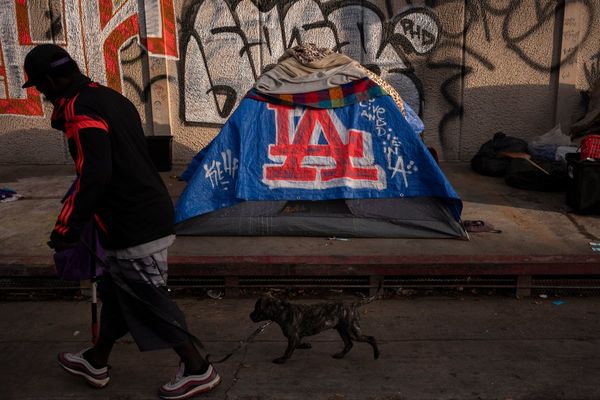ResMed stock tumbled Friday after organic sales growth slowed somewhat in the second fiscal quarter. But one analyst remained upbeat on the "mega trends" driving the CPAP maker.
During the quarter ended Dec. 31, ResMed generated $1.28 billion in sales. ResMed makes continuous positive airway pressure devices, or CPAPs. These face-worn masks treat sleep apnea. Organically, sales climbed 10%, down from 11% in the first quarter. Analysts projected a lower $1.27 billion in sales.
William Blair analyst Margaret Kaczor Andrew noted the beat was driven by double-digit growth in both U.S. masks and devices for the second consecutive quarter.
Management believes to be in "the very early stages of a potential halo effect from broader mega trends driving consumer interest in general health and wellness, and ultimately sleep apnea," she said in a client note.
But, at the close, ResMed stock crumbled 8.3%, ending the regular session at 236.18. Shares broke out of a double-bottom base with a buy point at 252.36 on Jan. 27, according to MarketSurge. But, ResMed stock fell as much as 6.9% below its entry on Friday. Savvy investors are encouraged to cut their losses when a stock falls 7%-8% below the buy point.
Earnings Easily Beat
Notably, ResMed also came in with adjusted earnings of $2.43 per share, well ahead of forecasts for $2.32 a share. Earnings surged more than 29% year over year.
However, ResMed stock took a hit on lower mask sales in Europe, Asia and other markets. Though, device sales grew 9%, offsetting that, William Blair's Andrew said.
She rates ResMed stock an outperform.
"We believe the fundamentals in this durable medtech growth story remain positive," she said.
Do Weight-Loss Drugs Pose A Risk?
But Needham analyst Mike Matson says ResMed is still facing risks from weight-loss drugs. Eli Lilly recently won Food and Drug Administration for its drug, Zepbound, as a treatment for sleep apnea. That will likely lead to Medicare reimbursement for Zepbound in patients with obstructive sleep apnea.
The company, though, says the new class of drugs is complementary to treatment with a CPAP. Chief Executive Mick Farrell says some patients might have their sleep apnea resolved with Zepbound or Novo Nordisk's Wegovy. But that's a small number.
Further, adherence to these drugs generally declines with time. And, notably, patients in Lilly's study still experienced sleep suffocation episodes, though at a lower rate than prior to treatment, he said in a recent interview with Investor's Business Daily.
Needham's Matson kept his hold rating on ResMed stock.







